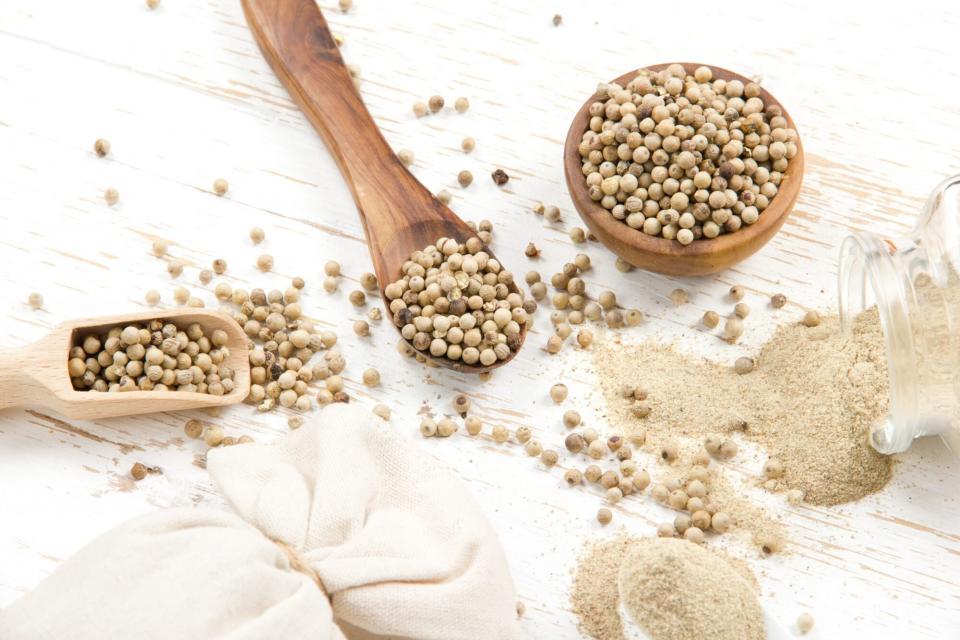What Is White Pepper? Plus, Find Out When You Should Use It in Place of Black Pepper in Your Cooking
Are black pepper and white pepper interchangeable in recipes? That depends on what you are cooking. But first, it's important to understand what makes them different. It may seem like the two spices come from different plants, but they are essentially the same berries that have simply been picked and processed differently. Black peppercorns are picked before they ripen, then immediately dried, which concentrates and intensifies. The drying process renders them black and wrinkly. White peppercorns are harvested fresh, once they've reached peak ripeness and maturity. They are soaked as part of the fermentation process, then washed and dried. Their skins are removed in processing, which also removes some of the flavor that gives black pepper its pungency and aroma.
The flavor of white pepper is often described as musty, grassy, or slightly fermented. It's generally considered milder than black pepper, though some claim they prefer its heat, and others describe notes of ginger. As in many things, the taste is subjective and can depend on how it is processed. Try tasting them side by side yourself, and see which flavor differences emerge.

lindavostrovska / Getty Images
Related: How to Shop for Olive Oil According to Our Test Kitchen
The two are interchangeable in small amounts, as part of a general post-cooking seasoning with salt. Anything more than that, however, and the flavor will be more noticeable, so use either ground pepper judiciously if it's not what's called for in a recipe. When white pepper is called for, it's usually because you want the other flavors in the recipe to shine through, like in this delicate herb and garlic yogurt cheese. Some recipes—like cream sauces and mashed potatoes, for example—call for ground white pepper in place of black to keep the color of the finished dish uniform, but this is more of an aesthetic preference.
White pepper is used widely in different Asian cuisines, notably in Chinese and Vietnamese food. It's traditionally used to flavor hot and sour soup and in preparations for shrimp. It's also used in many European dishes, particularly Scandinavian classics like Swedish meatballs. Like black pepper (and loads of other spices), white pepper loses its potency once ground. Opt for whole white peppercorns if you can find them. If ground white pepper is all that's available, be sure to buy the smallest size jar, and replace it often.

